 W
WWilliam Jacob Aldag was an Australian rules footballer who played for Footscray and Collingwood in the Victorian Football League (VFL).
 W
WLieutenant Colonel Charles Groves Wright Anderson, VC, MC was a South African-born soldier, Australian recipient of the Victoria Cross, a member of the Australian House of Representatives, and a farmer. After growing up in Africa and being schooled in England, Anderson served as an officer during the East African campaign against the Germans during the First World War, reaching the rank of captain and being awarded the Military Cross.
 W
WSir Kenneth McColl Anderson, was an Australian politician.
 W
WThe Aso Mining forced labour controversy concerns the use of Allied prisoners of war (POW) and Korean conscripts as labourers for the Aso Mining Company in Japan during World War II. Surviving labourers and other records confirmed that the prisoners and conscripts were forced to work in harsh, brutal conditions for little-to-no pay and that some died, at least in part, because of the ill-treatment at the mine.
 W
WKenneth Andrew Attiwill was an Australian journalist, author, playwright and scriptwriter.
 W
WBenjamin Arthur Barnett was an Australian cricketer who played in four Tests in 1938.
 W
WAndrew William "Nicky" Barr, was a member of the Australian national rugby union team, who became a fighter ace in the Royal Australian Air Force (RAAF) during World War II. He was credited with 12 aerial victories, all scored flying the Curtiss P-40 fighter. Born in New Zealand, Barr was raised in Victoria and first represented the state in rugby in 1936. Selected to play for Australia in the United Kingdom in 1939, he had just arrived in England when the tour was cancelled following the outbreak of war. He joined the RAAF in 1940 and was posted to North Africa with No. 3 Squadron in September 1941. The squadron's highest-scoring ace, he attained his first three victories in the P-40 Tomahawk and the remainder in the P-40 Kittyhawk.
 W
WBrigadier Arthur Seaforth Blackburn, was a soldier, lawyer, politician, and Australian recipient of the Victoria Cross (VC), the highest award for valour in battle that could be awarded to a member of the Australian armed forces at the time. A lawyer and part-time soldier prior to the outbreak of World War I, Blackburn enlisted in the Australian Imperial Force in August 1914, and was assigned to the 10th Battalion. His unit landed at Anzac Cove, Gallipoli, on 25 April 1915 and he and another scout were credited with advancing the furthest inland on the day of the landing. Blackburn was later commissioned and, along with his battalion, spent the rest of the Gallipoli Campaign fighting Ottoman forces.
 W
WAdair Macalister Blain was an Australian politician and soldier. He represented the Division of Northern Territory in the House of Representatives from 1934 to 1949, albeit with limited voting rights. He enlisted in the army during World War II and was captured by the Japanese after the Fall of Singapore, the only serving member of parliament to become a prisoner of war.
 W
WRussell Reading Braddon was an Australian writer of novels, biographies and TV scripts. His chronicle of his four years as a prisoner of war, The Naked Island, sold more than a million copies.
 W
WGeorge Howard Branson was an Australian politician who served as a Senator for Western Australia from 1958 to 1971, representing the Liberal Party.
 W
WLieutenant Colonel Vivian Statham, was an Australian Army nurse during the Second World War. She was the sole surviving nurse of the Bangka Island Massacre, when the Japanese killed 21 of her fellow nurses on Radji Beach, Bangka Island, in the Dutch East Indies on 16 February 1942.
 W
WMajor General Cecil Arthur Callaghan, was an Australian Army officer who served during the First and the Second World Wars. He was the commander of the 8th Division when it surrendered to the Japanese Empire at the end of the Battle of Singapore.
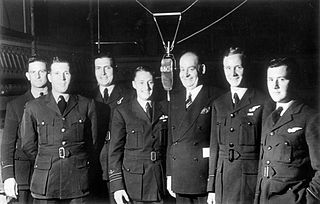 W
WJames Catanach, known as "Jim" or Jimmy, was an Australian Handley Page Hampden bomber pilot who was taken prisoner during the Second World War. Reportedly the youngest squadron leader bomber pilot in the Royal Australian Air Force at the age of twenty he is notable for the part he took in the 'Great Escape' from Stalag Luft III in March 1944 and as one of the men re-captured and subsequently shot by the Gestapo.
 W
WFrederick Royden Chalmers, was an Australian farmer, soldier, businessman, and government administrator. His murder by Japanese soldiers on Nauru in 1943 was the focus of a war crimes trial following the Second World War.
 W
WLeslie Allan "Peter" Chitty BEM was an Australian rules footballer who played for St Kilda in the Victorian Football League (VFL) and who won the only "Changi Brownlow" awarded in the Prisoner of War Changi Football League.
 W
WRalph Churches was an Australian army private who planned and carried out the biggest and most successful POW escape of World War II. One of eight children, Ralph was a 27-year-old bank teller when he enlisted in the Second Australian Imperial Force's 2/48th Battalion on 14 June 1940.
 W
WAlbert Neil Cleary was an Australian soldier during World War II. Part of the 2/15th Field Regiment, Royal Australian Artillery, he became a prisoner of war to the Japanese following the Battle of Singapore. He died following an escape attempt in 1945. In 2001, the Australian Labor Party introduced a bill to have Cleary and two others awarded the Victoria Cross for Australia, however this was defeated by the Federal Liberal Government. In 2011, Cleary was awarded a posthumous Commendation for Gallantry. Cleary's death was revealed by historian Lynette Silver to have been caused by dysentery, calling into doubt his elevation as a war hero.
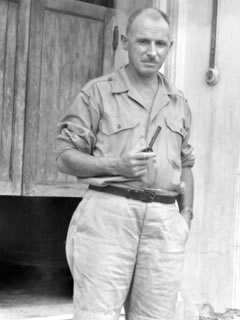 W
WSir Albert Ernest Coates OBE, FRCS (1895–1977) was an Australian surgeon and soldier. He served as a medical orderly in World War I serving on Gallipoli, and as a senior surgeon for the Australian Army Medical Corps in World War II in Malaya. He was captured by the Japanese and during his time as a POW, worked as a surgeon for the many Allied POWs working to build the Burma-Thailand Railway.
 W
WRaymond Tasman Donoghue GC was an Australian tram driver posthumously awarded the George Cross for the gallantry he displayed in Hobart, Tasmania.
 W
WVance Drummond, was a New Zealand–born Australian pilot who fought in the Korean and Vietnam Wars. He initially saw service in the New Zealand military, but joined the Royal Australian Air Force in 1949 and graduated as a sergeant pilot in 1951. Posted to No. 77 Squadron in Korea, he flew Gloster Meteor jet fighters and earned the US Air Medal for his combat skills. He was shot down by a Mikoyan-Gurevich MiG-15 in December 1951 and imprisoned for almost two years. After returning to Australia he converted to CAC Sabre jets and in December 1961 became a flight commander with No. 75 Squadron; he subsequently led the squadron's Black Diamonds aerobatic team, and was awarded the Air Force Cross in 1965.
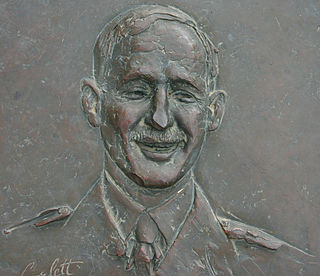 W
WColonel Sir Ernest Edward "Weary" Dunlop, was an Australian surgeon who was renowned for his leadership while being held prisoner by the Japanese during World War II.
 W
WMajor General Sir Frederick Gallagher Galleghan, was a senior officer in the Australian Army who served in the First and Second World Wars.
 W
WDouglas Grant was an Aboriginal Australian soldier, draughtsman, public servant and factory worker. During World War I, he was captured by the German army and held as a prisoner of war at Wittendorf, and later at Wunsdorf, Zossen, near Berlin.
 W
WAl Hake , was an Australian Supermarine Spitfire pilot who was taken prisoner during the Second World War. He is notable for the part he took in the 'Great Escape' from Stalag Luft III in March 1944 and as one of the men recaptured and subsequently shot by the Gestapo.
 W
WHellfire: The Story of Australia, Japan and the Prisoners of War is a history book written by Australian journalist and author Cameron Forbes published by Macmillan Publishers in 2005. It tells the stories of Australian prisoners of war of the Japanese during the Second World War, with particular focus on the Burma Railway.
 W
WAgnes Betty Jeffrey, OAM was an Australian writer who wrote about her Second World War nursing experiences in the book White Coolies.
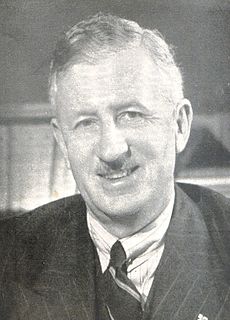 W
WSir Wilfrid Selwyn "Bill" Kent Hughes was an Australian army officer and politician who had a long career in both state and federal politics, most notably as a minister in the Menzies Government. He also had a longstanding involvement with the Olympic movement, as both an athlete and organiser.
 W
WGeorge Hamilton Lamb was an Australian politician. He was a member of the Victorian Legislative Assembly from 1935 until his death in 1943, representing the electorate of Lowan for the Country Party.
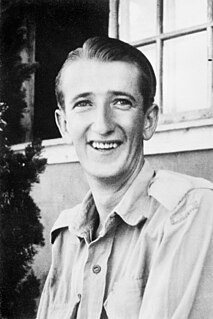 W
WHorace William Madden, GC, also known as Bill Madden, was a soldier in the Australian Army who was a posthumous recipient of the George Cross for his conduct while a prisoner of war during the Korean War.
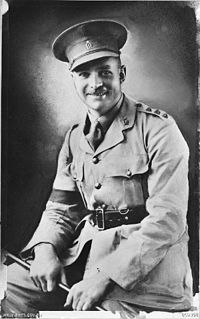 W
WLionel Colin Matthews, was an Australian Army officer in World War II. He was posthumously awarded the George Cross, the highest award for heroism or courage not in the face of the enemy, that could be awarded to a member of the Australian armed forces at the time. Matthews was born in Adelaide, South Australia, and was schooled there before moving to Victoria. He trained as a signalman in the Royal Australian Naval Reserve before joining the Militia in April 1939. Commissioned as an officer in the Australian Corps of Signals, Matthews transferred to the 8th Division of the Second Australian Imperial Force after the outbreak of World War II.
 W
WJack Perry and Douglas McKenzie — were an entertainer duo from Melbourne who were known and billed professionally as the clown act, Zig and Zag. They appeared on Australian television from its inception in 1956 to 1999 beginning with Peters Fun Fair (1956–69). They featured on the annual Moomba parade, and were regulars at annual charity events including the Good Friday Appeal for the Royal Children's Hospital. Perry was also an actor on television serials and presenter whilst McKenzie, was also a radio and television presenter and producer and former soldier. In March 1999 the duo permanently parted company after it was revealed that Jack Perry had been convicted in 1994 of indecent assault on his granddaughter.
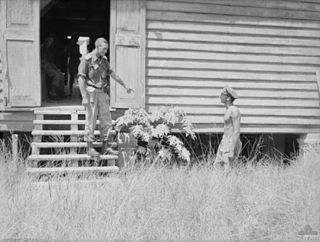 W
WRobert Kerr "Jock" McLaren MC & Bar was a decorated Australian Army officer, who rose from enlisted rank and was noted for his involvement in guerrilla operations against the Japanese during World War II.
 W
WMajor Arthur Moon was an Australian army doctor who saved the lives of dozens of Far East prisoners of war as the Thailand-Burma Railway was being constructed during World War II.
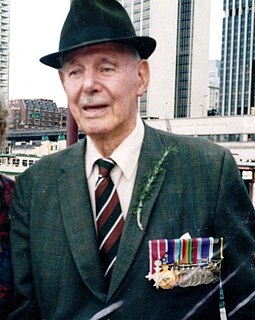 W
WLieutenant Colonel Reginald William James Newton, was an Australian Army officer noted for his leadership while in Japanese prisoner of war camps during the Second World War. He became well known among Australian military circles, where he was affectionately known as "Roaring Reggie."
 W
WWilma Elizabeth Forster Young AM was an Australian Army nurse during the Second World War. She was evacuated from Singapore in February 1942 and was aboard the Vyner Brooke when the ship was sunk in Bangka Strait by Japanese aircraft. After surviving in the water for many hours she came ashore at Bangka Island and became a prisoner of war (POW) until 1945. Vivian Bullwinkel and Betty Jeffrey were captives together with Oram.
 W
WHarold Hillis Page, was an Australian Army officer and public servant. He rose from private to major during the First World War, and was temporary commander of the 25th Battalion on several occasions. He subsequently joined the Commonwealth Public Service and was posted to the Territory of New Guinea, serving as government secretary from 1923 and as acting administrator on a number of occasions. He was captured by the Japanese in 1942 and is listed among those killed in the sinking of the SS Montevideo Maru.
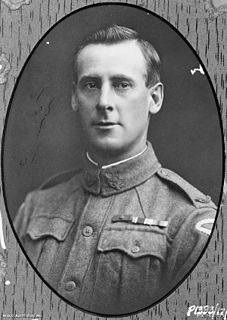 W
WWalter "Wally" Peeler, was an Australian recipient of the Victoria Cross, the highest award for gallantry "in the face of the enemy" that can be awarded to members of the British and Commonwealth armed forces. He was decorated following his actions during the Battle of Broodseinde in October 1917. Then a lance corporal in the Australian Imperial Force, he repeatedly took the lead in the 37th Battalion's advance on well-defended German positions, destroying four machine gun posts and killing more than 30 German soldiers during the battle.
 W
WArchibald Frederick Roberts was an Australian rules footballer who played for the Melbourne Football Club and Essendon Football Club in the Victorian Football League (VFL). Roberts also played with Victorian Football Association (VFA) club Prahran after his VFL career ended.
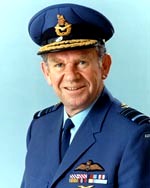 W
WAir Marshal Sir James Anthony (Jim) Rowland, was a senior commander in the Royal Australian Air Force (RAAF), serving as Chief of the Air Staff (CAS) from 1975 to 1979. He later held office as Governor of New South Wales from 1981 to 1989, and was Chancellor of the University of Sydney from 1990 to 1991. Born in rural New South Wales, Rowland cut short his aeronautical engineering studies at the University of Sydney to join the RAAF in 1942. He was posted to Britain and served as a bomber pilot with the Pathfinders in the air war over Europe, earning the Distinguished Flying Cross in 1944. The following year he was forced to bail out over Germany following a collision with another Allied aircraft, and spent the rest of the war as a prisoner.
 W
WJohn Russell Savige MC, ED was a leading figure in Scouting in Victoria. From 1939 to 1945 he served in World War II and was taken Prisoner of War in Crete.
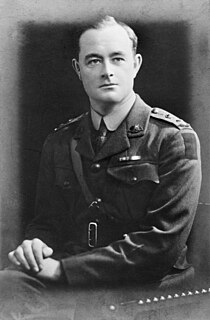 W
WLieutenant Colonel John Joseph Scanlan DSO & Bar was an Australian Army officer who served during the First and Second World Wars.
 W
WLeonard George Siffleet was an Australian commando of World War II. Born in Gunnedah, New South Wales, he joined the Second Australian Imperial Force in 1941, and by 1943 had reached the rank of sergeant. Posted to M Special Unit of the Services Reconnaissance Department, Siffleet was on a mission in Papua New Guinea when he and two Ambonese companions were captured by partisan tribesmen and handed over to the Japanese. All three men were interrogated, tortured and later beheaded. A photograph of Siffleet's impending execution became an enduring image of the war, and his identity was often confused with that of other servicemen who suffered a similar fate, in particular Flight Lieutenant Bill Newton.
 W
WWilfred Arthur "Chicken" Smallhorn was an Australian rules footballer who played in the Victorian Football League (VFL). He played 150 games for the Fitzroy Football Club between 1930 and 1940, winning the Brownlow Medal in 1933.
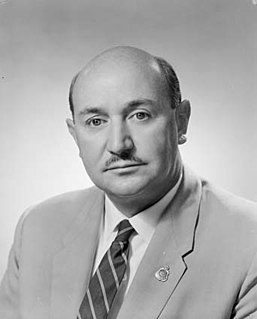 W
WSir Reginald William Colin Swartz KBE, best known as Reg Swartz, was an Australian Liberal Party politician who was Minister during the governments of Sir Robert Menzies, Harold Holt and John Gorton. In particular, he is best known as the Minister for Civil Aviation between 1966 and 1969.
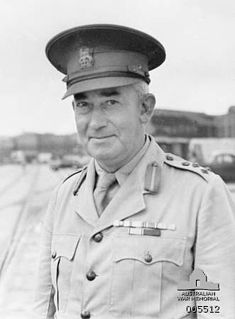 W
WBrigadier Harold Burfield Taylor, was an analytical chemist and an Australian Army officer who served in the First and the Second World Wars. A junior officer in the First World War, during the Second World War he was commander of the 22nd Infantry Brigade during the invasion of Malaya. Captured along with many of his fellow soldiers following the fall of Singapore, he spent the remainder of the war as a prisoner of war. In civilian life, he was an analyst for the government and an expert in poisons, often called upon to give evidence in criminal trials involving poisoning.
 W
WErnest Albert Toovey MBE, OAM was an Australian cricketer and baseball player. In cricket, Toovey was a left-handed batsman who bowled slow left-arm orthodox. He was born at Warwick, Queensland.
 W
WSir Winton George Turnbull, was an Australian politician.
 W
WThomas Uren was an Australian politician and Deputy Leader of the Australian Labor Party from 1975–77. Uren served as the Member for Reid in the Australian House of Representatives from 1958–90, being appointed Minister for Urban and Regional Development (1972–75), Minister for Territories and Local Government (1983–84) and Minister for Local Government and Administrative Services (1984–87). He helped establish the heritage and conservation movement in Australia and, in particular, worked to preserve the heritage of inner Sydney.
 W
WBrigadier Arthur Leslie Varley, MC & Bar was an Australian soldier who served in the First and the Second World Wars. He was commander of the 22nd Infantry Brigade during the final stages of the Battle of Singapore in the Second World War. Having surrendered to the Japanese, he was responsible for over 9,000 prisoners of war engaged in the construction of the Burma-Thailand Railway. He is presumed to have been killed in September 1944, shortly after the transport ship taking him and several hundred fellow prisoners to Japan was sunk.
 W
WRaymond Carson Watts was an Australian rules footballer who played with Essendon in the Victorian Football League (VFL).
 W
WRobert Graham Williams MBE was a cricketer who played first-class cricket for South Australia from 1933 to 1938 and the Australian Services team in 1945.
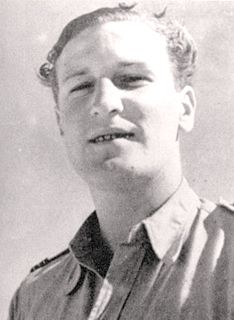 W
WSquadron Leader John Edwin Ashley "Willy" Williams, DFC was an Australian air ace during the Second World War. He served in the Middle East and North Africa with the Royal Air Force (RAF), and was among the Allied prisoners of war (POWs) murdered by the Gestapo following "The Great Escape" in 1944. He commanded No. 450 Squadron of the Royal Australian Air Force for three days, before he was captured in 1942.